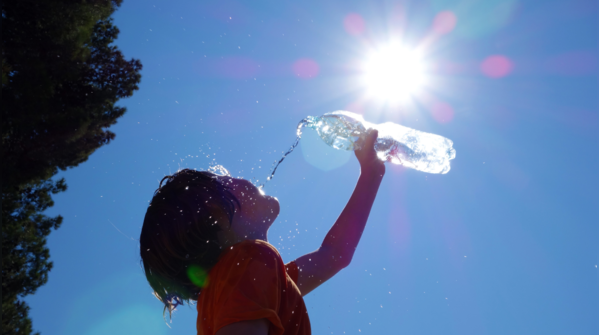- News
- lifestyle
- health-fitness
- health-news
- 5 common health issues people face during summers and tips on how to stay safe
5 common health issues people face during summers and tips on how to stay safe

How to stay safe in summer season
The summer season brings sunshine, vacations, and outdoor fun, but it also comes with its own set of health challenges. The extreme heat, increased humidity, and lifestyle changes during this time can make people more prone to certain health problems. From dehydration to food poisoning, summer can take a toll on our well-being if we are not careful. But don’t worry! With a few precautions, you can enjoy the season while staying healthy. Let’s take a look at some common health issues people face during the summer and how you can prevent them.

Dehydration
Why it happens: Hot weather makes you sweat more, leading to a loss of water and essential minerals from the body. If you don’t replenish these fluids, you may experience dehydration, which can cause dizziness, headaches, fatigue, and dry skin.
How to stay safe:
Drink plenty of water throughout the day, even if you don’t feel thirsty.
Include hydrating foods like watermelon, cucumber, and oranges in your diet.
Avoid excessive caffeine and alcohol, as they can dehydrate you further.
Carry a water bottle when stepping out in the sun.

Skin problems
Why it happens: Prolonged exposure to the sun and excessive sweating can lead to various skin issues like sunburn, rashes, and fungal infections. Heat rashes occur due to clogged sweat glands, while excessive sun exposure can cause skin damage.
How to stay safe:
Always apply sunscreen (SPF 30 or higher) before going outdoors.
Wear light, breathable clothing to prevent sweat accumulation.
Take cool showers and keep your skin dry to avoid fungal infections.
Use aloe vera gel or a soothing moisturizer to treat sunburn.

Urinary tract infections (UTIs)
Why it happens: Dehydration and excessive sweating can reduce urine output, leading to a higher concentration of bacteria in the urinary tract. This increases the risk of UTIs, especially in women.
How to stay safe:
Drink plenty of fluids to flush out toxins from your system.
Maintain proper hygiene, especially after using public restrooms.
Avoid holding in urine for too long.
Wear loose-fitting, cotton underwear to keep the area dry and prevent bacterial growth.

Food poisoning
Why it happens: Rising temperatures create the perfect environment for bacteria to multiply in food, increasing the risk of foodborne illnesses. Eating contaminated or spoiled food can lead to nausea, vomiting, stomach cramps, and diarrhea.
How to stay safe:
Always eat freshly cooked meals and avoid street food in extreme heat.
Refrigerate leftovers promptly and consume them within a day.
Wash fruits and vegetables thoroughly before eating.
Stay away from unfiltered water and ensure proper food hygiene.

Heat exhaustion and heatstroke
Why it happens: Prolonged exposure to high temperatures can lead to heat exhaustion, which may cause dizziness, nausea, and excessive sweating. In severe cases, it can turn into heatstroke, a medical emergency where the body loses its ability to cool down.
How to stay safe:
Avoid stepping out during peak sunlight hours (12 PM – 4 PM).
Wear a hat, sunglasses, and light-colored clothing.
Stay indoors in well-ventilated or air-conditioned spaces during extreme heat.
Drink electrolyte-rich fluids like coconut water to replenish lost minerals









